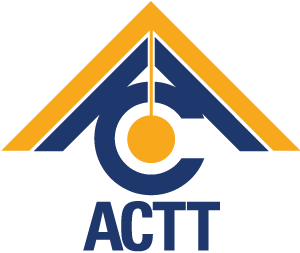Empower Your Workforce with Confidence
Equivalence Assessment
Many HR professionals may encounter challenges of understanding different types of qualifications. ACTT’s Equivalence Assessment service can assist in providing insight into the level of qualifications.
What is a ‘Statement on Equivalence’?
The Statement on Equivalence is an official evaluation of a qualification to determine its level. The level of the qualification/programme is determined by examining entry requirements, academic and vocational progression routes and testing of learning outcomes against the National Qualifications Framework for Trinidad and Tobago (NQF-TT) and the CARICOM Qualifications Framework (CQF).
For qualifications awarded by foreign awarding bodies and institutions, recognition of the qualifications is dependent on quality assurance of the institution by the recognised body in the country of origin, external quality assurance of the programme in the country of origin or accreditation of the qualification by ACTT, and acceptance of the qualification (if specialised) by the established and recognised Professional Statutory Regulatory Body (PSRB) in the country of origin, if any.
For qualifications awarded by the local awarding bodies and institutions, recognition of the qualification is dependent on external quality assurance of the institution by ACTT, approval of the programme by the ACTT, and acceptance of the qualification, (if specialised) by the established and recognised Professional Statutory Regulatory Body (PSRB) in Trinidad and Tobago, if any.
At present, Equivalence Assessments are completed for qualifications that are already earned by graduates.
Case: A job candidate presents a professional qualification awarded by a foreign institution.
Recommended action: Before shortlisting, request that the candidates submit a Statement on Equivalence from ACTT to confirm the recognition and level of the qualification.
The Benefits of Using ACTTs Statement on Equivalence Service
- Clarity on Credential Level: Gain accurate insight into the level of the programme. The Level of the qualification is determined by examination of entry requirements, academic and vocational progression routes and testing of the programme’s learning outcomes against the CARICOM Qualifications Framework (CQF) and the National Qualifications Framework of Trinidad and Tobago (NQF-TT).
- Equity in Compensation: Establish fair salary bands based on qualification levels.
- Streamlined Recruitment: Reduce uncertainty when hiring candidates educated abroad.
How to Access Statement on Equivalence Service
Visit https://actt.org.tt/services/recognition/equivalence-assessment to learn more or begin the application process. The service is available to employers, HR departments, and individuals.
ACTT’s Statement on Recognition Services
As an HR professional, making informed decisions about qualifications and credentials is essential to maintaining the integrity and effectiveness of your workforce. The Accreditation Council of Trinidad and Tobago (ACTT) offers the Statement on Recognition service, a trusted solution for verifying the legitimacy of local, regional and international qualifications.
What is a ‘Statement on Recognition’?
The Statement on Recognition is an official document issued by ACTT that confirms whether a qualification is recognised. It ensures that qualifications presented by candidates or employees meet national standards for credibility and comparability.
Why HR Professionals Should Request Statements on Recognition
1. Recruitment and Talent Acquisition
- Verify qualifications confidently during the hiring process, especially when you receive qualifications from graduates of foreign or unfamiliar institutions.
- Filter out fraudulent or misrepresented credentials, reducing legal and operational risks.
- Make fair comparisons between international and local applicants, as the Statement on Recognition helps to confirm that both qualifications are legitimate and that the institutions in question are recognised.
Case: A job candidate presents a degree from an institution in Europe or Asia.
Recommended action: Before shortlisting, require candidates to submit a Statement on Recognition from ACTT to confirm that their qualifications are recognised.
2. Learning, Development and Career Progression
- Confirm that an employee’s external training or qualification meets the standard for internal promotion or upskilling pathways.
- Allocate your learning and development investments/study loans to accredited/recognised institutions, whether locally or abroad.
- Provide employees with clarity when planning professional development or study leave applications.
Case: An employee intends to pursue an online postgraduate programme, either locally or from an international institution.
Recommended action: Advise the employee to obtain a Statement on Recognition from ACTT. This would verify that the institution and programme are legitimate and recognised, which could positively inform your decision about approving a study loan. It would also confirm whether the qualification will be recognised for future advancement within your organisation.
The Benefits of Using ACTT’s Statement on Recognition Service
- Trusted verification
- Increased hiring credibility and integrity
- Supports evidence-based HR decisions
- Prevents costly hiring or training mistakes by identifying and avoiding candidates with fraudulent qualifications.
- Promotes fairness and transparency in selection and promotion
How to Access the Statement on Recognition Service
Visit https://actt.org.tt/services/recognition to learn more or begin the application process. The service is available to employers, HR departments, and individuals.
Click to download ACTT’s Employers’ Statement on Recognition Brochure




 Translate
Translate
